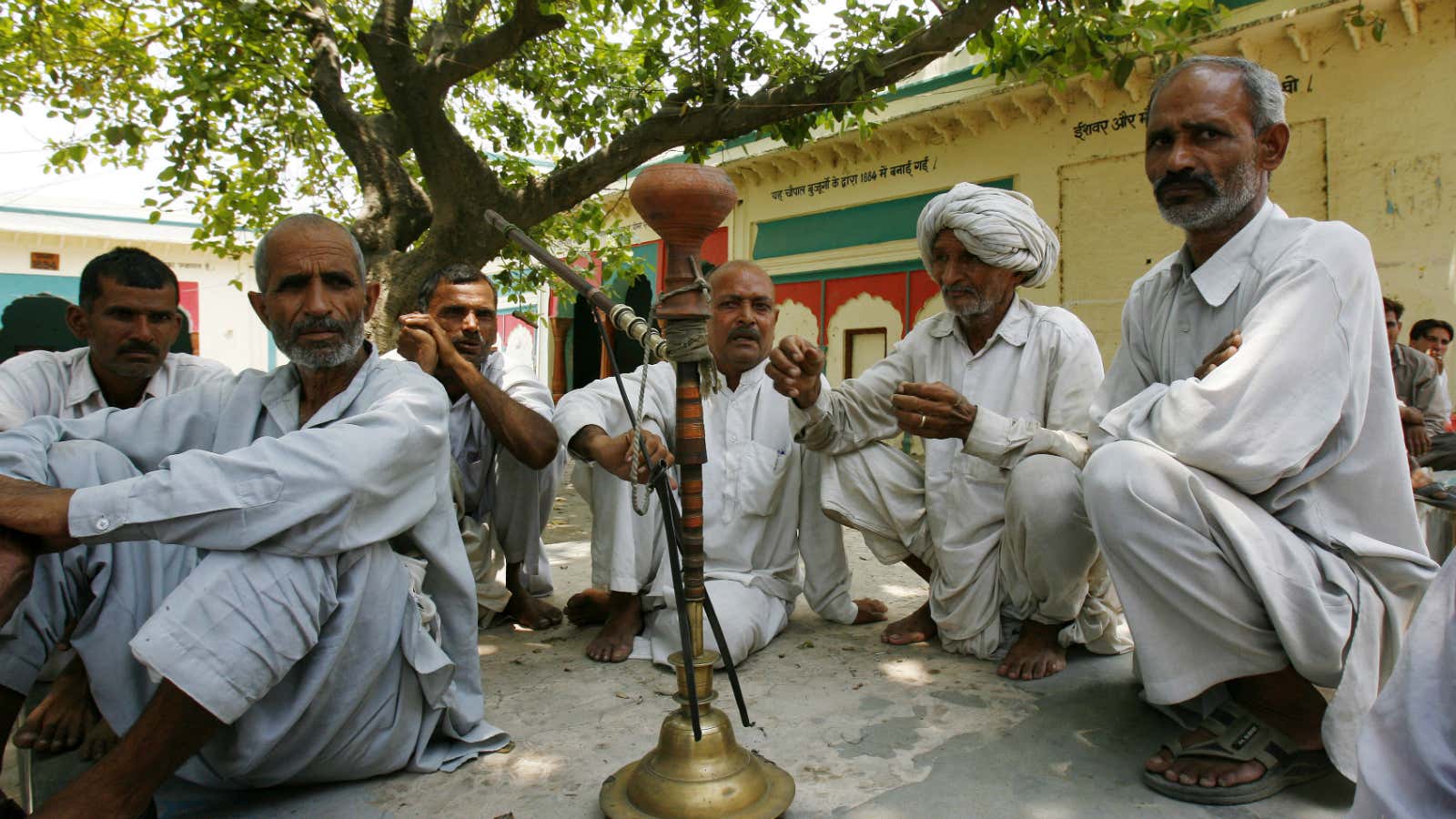The Pakistan-India conflict has been raging for 70 years and there have been many international attempts to get the countries to sit down and work out their differences. All have failed because they have not properly assessed the psychological nature of the problem and have largely ignored traditional conflict resolution systems in the subcontinent. If they were to delve deeper, international peacekeepers could take hope and inspiration from a smaller, older and more local justice system which has been mediating disputes in warring territories for centuries.
Conflict resolution is a cultural phenomenon and is dependent on any society’s relevant norms, practices and institutions. While conflict is universal, the ways in which it is expressed and managed are not. There are a variety of techniques and processes for handling conflict around the world which take in the culture of the warring groups. Different cultures develop their own formal and informal ways of handling conflict—such as Ubuntu/Gacaca and Mato Oput in Africa, Jirga in Afghanistan and Sulah in the Middle East.
This can make conflict resolution seem complicated as each specific cultural model has its own perception of conflict and the techniques for resolving it. For example, adultery can receive different types and scales of punishment in different cultures.
Interestingly, a large number of interstate conflicts in the world are between culturally similar groups, such as North and South Korea, Serbia-Croatia-Bosnia and Palestine and Israel. Therefore, the study of indigenous models for conflict resolution is crucial before proposing a peacemaking agenda for such nations.
The panchayat system
Rural societies in India and Pakistan are structurally similar, if not identical in every detail. Both are agrarian societies and basic needs, including justice, have always been provided to people at village level. These village communities have been termed “little kingdoms” and “little republics”, being self-sufficient and almost independent of any foreign relations.
Traditionally, the panchayat system has acted as the justice-providing/conflict resolution organ in South Asian villages (mainly in India, Pakistan, Bangladesh and Nepal). The word “panchayat” literally means a gathering of five but technically it is used to represent a council of respected village elders. The term has been used for centuries to describe traditional village assemblies.
The panchayat system is still practised in many parts of the subcontinent for conflict resolution. And despite massive urbanisation during the last three decades, around 70% of people still live in villages in both India and Pakistan.
Indigenous psychology
I believe the main reason international conciliators have failed to bring peace to this emotionally charged region is their ignorance of indigenous psychology. International peacemakers need to know what the secrets behind the success of the panchayat system are before delving into statewide issues.
The success of panchayatees (the five members of panchayat jury) largely depends upon both their respect and status within communities. It is not only the standing of jury members that enables them to impose their verdicts but the honour bestowed upon them by the parties in dispute. As an indigenous saying explains: “Even the prostitutes have money and power, but no prestige.” This could explain why superpowers like the former USSR and the US have failed to permanently resolve the conflict.
The panchayat system deals with both emotional and material aspects of the conflict. One strategy involves hearing the grievances of those in dispute repeatedly to help desensitise the problem. The prolonged discussions covering all potential perspectives facilitate a kind of emotional catharsis. The history of conflict and past wounds are often of more concern to the warring parties than the actual conflict itself. The material part of the dispute is only a minor expression of a longstanding antagonistic relationship between two groups.
Long hearings in the presence of the entire community help to dissipate much of the emotion through this repeated recalling and re-experiencing of the grievance. The psychology behind this is to resolve the enmity and address the root causes.
Relative Justice
In contrast to universal principles of equality, the panchayat system provides relative justice based on the individuals and their community. The honour (Izzat) and status of the clashing parties has a strong bearing on the final decision which aims to save the honour of both sides—rather than sticking very closely to the facts. This aspect may seem strange to “Western” peacemakers and could be why it has been largely ignored as an arbitration tactic, despite its success at village level.
Jury members know exactly that people in the subcontinent can bear the material loss but not the loss of honour. Panchayat members provide both parties with “face-saving” resolutions, offering them different doses of honour and material benefits. The weaker party is usually privileged in terms of material benefits while the powerful party is promised an elevation in status.
It is time for international arbitrators to understand the locally constructed and time-tested common sense of conflict resolution in both countries. The process must be placed firmly within the frames of reference of both feuding groups.
The psychology does not differ much between interstate conflicts and smaller disputes within towns and villages. Although the Pakistan-India conflict is at the top of the scale when compared to village level quarrels, the characteristics are the same.
It is not to say that the panchayat system should replace the institutional layers of the modern international state system. But it should be used as inspiration to develop a workable model for interstate conflict resolution, one that appreciates the psychological and moral structures of this older and more humble form of justice.
Jawad Kadir, doctoral candidate, department of politics, Philosophy and Religion, Lancaster University. This article was originally published on The Conversation. Read the original article. We welcome your comments at [email protected].
